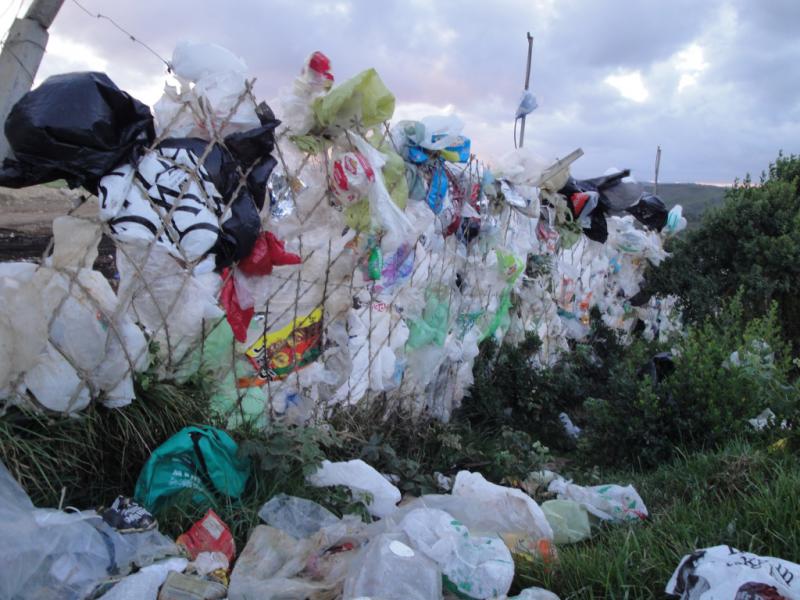The Power of Toxic Energy
Submitted by Bob Burton on
Mark Fiore's satirical take on Chevron in Ecuador

Submitted by Bob Burton on
Mark Fiore's satirical take on Chevron in Ecuador
Submitted by Diane Farsetta on
"Being socially and environmentally responsible should be an issue for leading PR companies," said Greenpeace activist Mariana Paoli. The group's new report, "Burning up Borneo," links deforestation and loss of orangutan habitat in Indonesia with Unilever suppliers producing palm oil for Dove brand soap.
Submitted by Diane Farsetta on
 "Suppose, for example, that you own a company that sells bottled water," which is "shipped, in its little plastic bottles, ten thousand miles from the bottling plant to the consumer," writes Steve Burns. "Could you possibly 'brand' such a product as eco-friendly?" If the company is FIJI Water, you'll try.
"Suppose, for example, that you own a company that sells bottled water," which is "shipped, in its little plastic bottles, ten thousand miles from the bottling plant to the consumer," writes Steve Burns. "Could you possibly 'brand' such a product as eco-friendly?" If the company is FIJI Water, you'll try.
Submitted by Anne Landman on
 As a manufacturer of gas/electric hybrid cars, Toyota has enjoyed a public image as an environmentally responsible company. Toyota runs television ads playing up the "green" appeal of its Prius hybrid.
As a manufacturer of gas/electric hybrid cars, Toyota has enjoyed a public image as an environmentally responsible company. Toyota runs television ads playing up the "green" appeal of its Prius hybrid.
Submitted by Judith Siers-Poisson on
Submitted by Judith Siers-Poisson on
Sludge keeps rearing its ugly head. Scientists used federal grant money to "spread fertilizer made from human and industrial wastes on yards in poor, black neighborhoods to test whether it might protect children from lead poisoning in the soil." The residents were not alerted to any harmful ingredients in the sludge, and were assured that it posed no health risks for their families.
Submitted by Sheldon Rampton on
Submitted by Anne Landman on
 The Progressive Bag Alliance, the American Chemistry Council and Wal-Mart Stores were among the parties who successfully lobbied Democratic Pennsylvan
The Progressive Bag Alliance, the American Chemistry Council and Wal-Mart Stores were among the parties who successfully lobbied Democratic Pennsylvan
Today marks the 38th annual celebration of Earth Day, and once again the event comes with its fair share of PR hype and misleading marketing campaigns. In the spirit of dedicating ourselves to genuine concern for the planet, today is therefore a good time to look carefully at corporate environmental claims, some of which consist more of empty rhetoric than real substance. Companies like Wal-Mart are announcing environmental initiatives. General Electric has its "Ecomagnation" advertising campaign. In Singapore, a shopping center is advertising that customers can "shop to save planet earth" -- and if they buy enough, they might win a new car! The ritual of green hypocrisy frequently requires that companies and politicians redefine environmental progress in increasingly creative ways. Last week, for example, George W. Bush announced a plan to address the problem of global warming by "halting the growth" of U.S. greenhouse gas emissions by the year 2025. Beyond the fact that this target date is 17 years in the future, what really means is that during those 17 years not only will greenhouse gas emissions continue, the amount of those emissions will continue to grow. As columnist Gail Collins observed in the New York Times, this would be akin to having an overweight person announce a plan to achieve "an 18 percent reduction in the rate at which he was gaining weight, to be reached within the next decade."
Submitted by John Stauber on
The Associated Press reports, "Democrats Barack Obama and Hillary Clinton are walking a delicate line as they promise to aggressively tackle global warming while trying to assure voters that they continue to believe in the future of coal," the energy source responsible for "nearly 2 billion tons of carbon dioxide, the leading greenhouse gas, each
Center for Media and Democracy (CMD)
520 University Ave, Ste 305 • Madison, WI 53703 • (608) 260-9713
CMD is a 501(c)(3) tax-exempt non-profit.
© 1993-2024